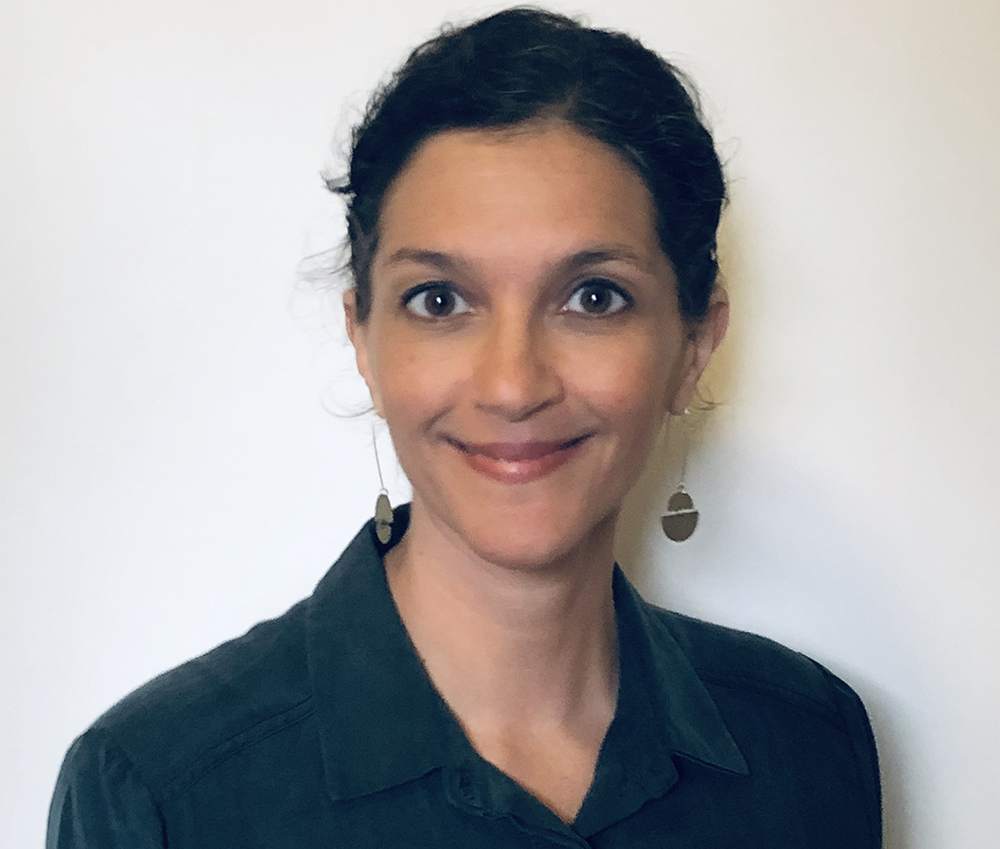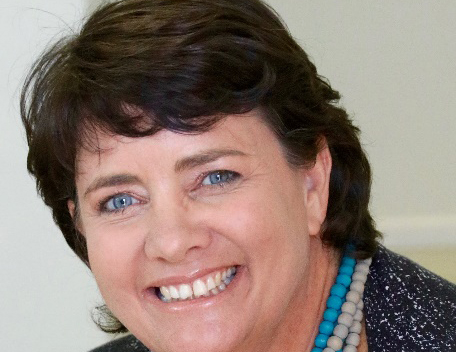Dr Riina Kionka is the EU Ambassador to the Republic of South Africa. (Photo: Estonian World)
This webinar was hosted by the Mail & Guardian and The European Union Delegation to South Africa. It featured Dr Riina Kionka, who heads the EU Delegation to South Africa; development economist Professor Daniela Casale from Wits University; development finance expert Zora Madikizela; and Tracey Chambers from The Clothing Bank, which empowers unemployed mothers to start retail trading businesses. It was facilitated by Marcelle Gordon, anchor at eNCA.
South African women have been hit disproportionately by the Covid-19 induced lockdown, said Dr Riina Kionka, who opened the discussion. Of the three million people estimated to have lost their jobs, two million were women, and this does not even include all those who worked in the informal sector. Women also look after the children and the aged, and are under further pressure from gender-based violence (GBV). The EU has committed over half a billion rands to the South African government to assist with recovery in the post-Covid-19 era; its programmes seek to mainstream gender equity and to maximise the potential of women and girls.
 Professor Daniela Casale is a development economist from Wits University
Professor Daniela Casale is a development economist from Wits UniversityProfessor Daniela Casale’s research has focused on how women were affected by the lockdown. Women suffered much greater job losses, especially in the first part of the lockdown. The most vulnerable were the worst hit: black women with little education and low incomes, in the informal sector, and who cannot work remotely. In homes, about 16 million children who would have been at school in lockdown were looked after by women, which meant they were spending at least an extra four hours a day on childcare, hindering their ability to find or do work.
Tracey Chambers outlined what The Clothing Bank does: helping disadvantaged women to trade in clothing. About 1 000 mothers have been helped, most of whom are single mothers and have not finished school. The lockdown severely impacted on these women’s ability to trade on the street, but most recovered very quickly post lockdown, as they were encouraged to save before it happened. As people shopped closer to home due to fears of catching the virus, this helped the traders to thrive as the lockdown lifted. Most are now back on their feet; and many are using social media to promote their businesses. Chambers said that there has been “absolutely no support” from government for the ECD sector, and most ECD centres have been unable to open, as they are unable to comply with Covid-19 regulations.
Gordon pointed out how the medical community has shared “as never before” knowledge about the virus across the globe, and asked if there has been a similar sharing in other fields in the EU? Kionka said that there had indeed been co-operation regarding repatriation, as many EU citizens were stuck in other countries when the lockdown occurred. She said the EU delegation aims to empower women, as to do so affects up to three generations.
 Tracey Chambers is the founder and CEO of The Clothing Bank
Tracey Chambers is the founder and CEO of The Clothing BankCasale said the Covid-19 crisis has exposed how much unpaid care work women do, although many more men did report looking after their kids, “so there may be a silver lining to the whole crisis, as men may come to value this work women do”. Chambers said that women’s anxiety levels increase if they don’t know their children are being cared for in a safe space. As lockdown lifted, many women were expected to return to work, but most childcare centres have still not opened.
Chambers also started The Appliance Bank to provide employment for men about six years ago. “There is major dignity in having work,” she pointed out. She said the women she works with are severely affected by GBV, and much of the focus in working with men has been talking about this issue; once the men have attained dignity through having work, they are “far more open” to discussing GBV.
Zora Madikizela said that limited access to finance is a big issue for female entrepreneurs globally, even though women more consistently pay loans back when they take them out. The EDSE (Ecosystem Development for Small Enterprise in South Africa) has been active in launching funding initiatives to assist small business in distress from the lockdown. Around R467-million has gone towards helping small and informal businesses, about 45% of which has gone to women-owned businesses. Some spaza shop owners have been assisted with credit, as they play an important role in keeping shoppers closer to their homes; another sector heavily affected was hairdressers. Many business models that worked prior to Covid-19 don’t work anymore, so adapting models of work has become essential, and operations must be improved.
Madikizela said many women entrepreneurs are not financially savvy, which is a problem when they apply for loans. Applications for credit rely on the past records of the SMME, and these are often lacking. Educating women in finance is therefore essential so they can apply for and obtain credit successfully. Casale said to support women, we need to support them to obtain higher-paying jobs; at school they must be encourage to study STEM subjects, at school and university. Women do well in education, but seldom progress to postgraduate level, often because of raising children. How can they obtain good employment and still support their kids?
Kionka responded by saying that there is a “30% rule” in most organisations; only 30% comprise women, and this representation figure must change. When there are more women and black people in positions of power, this inspires children to do the same and attain these positions themselves. Chambers concurred, saying the power of role modelling is huge. She said ten years ago, most people she worked with just wanted a job; now they want decent employment, they don’t want dead-end jobs. She said they have an ambassador programme running, to encourage women to become self-employed.
 Marcelle Gordon, Anchor on TV news channel eNCA
Marcelle Gordon, Anchor on TV news channel eNCAAnother thing that struck her in the lockdown is the importance of access to digital. “I can learn anything I want to from Google, but if I don’t have unlimited access to data, I can’t.” It’s becoming critical to have access to digital, so we can fast-track our education and close the inequality divide, said Chambers.
Social grants seems to be one the most effective ways to get money into remote areas, according to Casale. The Covid-19 top-ups to the grants came late, however, as many households live from day-to-day. Many grant-receiving households do supplement their income with informal work, but poor families are struggling with rising food prices. Many of the new grants are going to men, not women, although women were worst affected by the lockdown; she said a basic income grant is, for her, the way to go forward. Chambers said that a better data-base is required so that the government can support the informal sector, particularly ECD centres, more effectively.
 Zora Madikizela is a development finance expert
Zora Madikizela is a development finance expertIn closing, Madikizela said the bottom part of the pyramid must be targeted: small businesses must be supported and grown, as they provide employment, and digital must become more accessible in remote and rural areas. Casale said good quality childcare is essential so that women can focus on their work; extended family support is not always available, and women have the “double burden” of raising kids and having to earn. Chambers said to run your own business requires multiple skills, and there are onerous legal requirements and too much red tape — this does not create an enabling environment and has to be urgently addressed. Too many business cannot acquire funding as they cannot meet the legal requirements to enter the formal sector. We all need to be the change we want to see, said Kionka, and be role models for change.